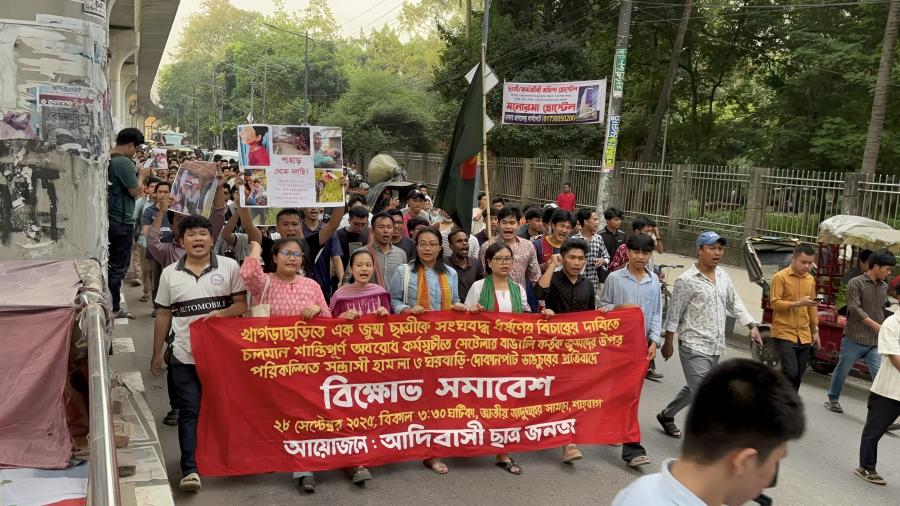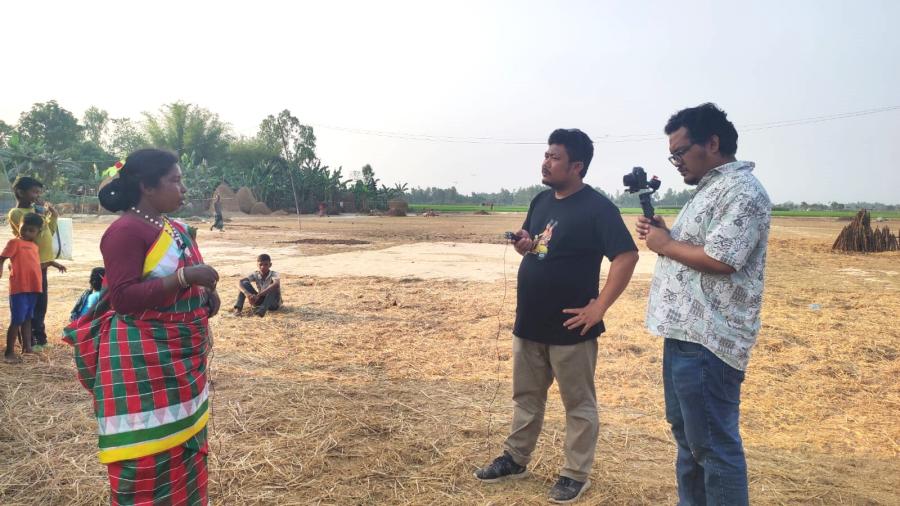On December 15th, GCM held its annual shareholders’ meeting in London, amidst throngs of protesters demonstrating outside the building. Protesters waved banners tagging the project as”modern day colonialism,” and carried “eviction notices” from the people of Bangladesh telling the company to abandon the Phulbari Coal project and leave the country, according to a report from the news site Morning Star.
Inside the meeting, speakers representing organizations that oppose the mine, including Global Response campaign partner the International Accountability project (IAP), the London Mining Network, and Amnesty International, criticized the project, citing grave concerns about potential human rights abuses and environmental destruction. A letter from Cultural Survival was presented to the company’s board voicing concern for the Indigenous peoples that would be displaced by the construction of the open-pit coal mine. (See full text of the letter below). Company Chairman Gerald Holden replied in the meeting that the company does accept the UN Declaration on the Rights of Indigenous Peoples, and said that there is a debate between the company and NGOs as to the meaning of Free Prior and Informed Consent.
Kate Hoshour of IAP responded that protests against the Phulbari project involving tens of thousands of people continue in Bangladesh. In October, 85 organizations signed a letter opposing the project. Some groups estimate that up to 50,000 Indigenous people will be displaced during construction and operation of the mine. The company has recognized potential impacts on only 2,300 Indigenous people.
Read more information and notes from the meeting on the London Mining Network.
Support the protests against the Phulbari project by sending emails to the prime minister of Bangladesh HERE.
Mr. Chairman,
My organization, Cultural Survival, advocates for the rights of Indigenous Peoples, as they are set forth in the United Nations Declaration on the Rights of Indigenous Peoples. The United Kingdom endorses this Declaration. My first question to you is: Has GCM endorsed the UN Declaration on the Rights of Indigenous Peoples? And if not, will you undertake to do so?
The Indigenous Peoples Development Plan prepared by Asia Energy lists the following expected negative impacts on Indigenous Peoples in the Phulbari Coal Project Area:
· Displacement and involuntary resettlement
· Loss of land, productive resources and assets
· Disrupted livelihoods
· Disrupted social networks and community bonds
All these negative impacts violate the rights of Indigenous Peoples according to specific articles of the UN Declaration on the Rights of Indigenous Peoples.
For example, Article 8 requires states to prevent or provide redress for any action that displaces Indigenous Peoples from their lands, territories or resources, or undermines their cultures through forced assimilation or integration. The Phulbari project will forcibly displace thousands of Indigenous families. How will GCM comply with Article 8 of the Declaration on the Rights of Indigenous Peoples?
Article 32 recognizes Indigenous Peoples’ right to free, prior, and informed consent “for any project affecting their lands or territories or other resources, particularly in connection with the development, utilization or exploitation of mineral, water or other resources.” Indigenous organizations in Bangladesh, most notably Jatiya Adivasi Parishad, have consistently, persistently and courageously opposed construction of the Phulbari mine for more than six years. In light of this opposition, how can GCM comply with Article 32 of the Declaration on the Rights of Indigenous Peoples?
Mr. Chairman, Jatiya Adivasi Parishad and independent researchers assert that 50,000 Indigenous people would be adversely affected by the Phulbari coal project. How is it possible for this project to proceed without violating their rights?
Paula Palmer, Director of Cultural Survival’s Global Response Program
Boulder, Colorado, USA


